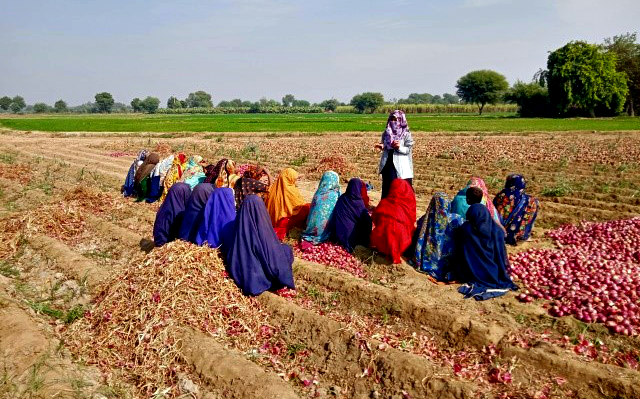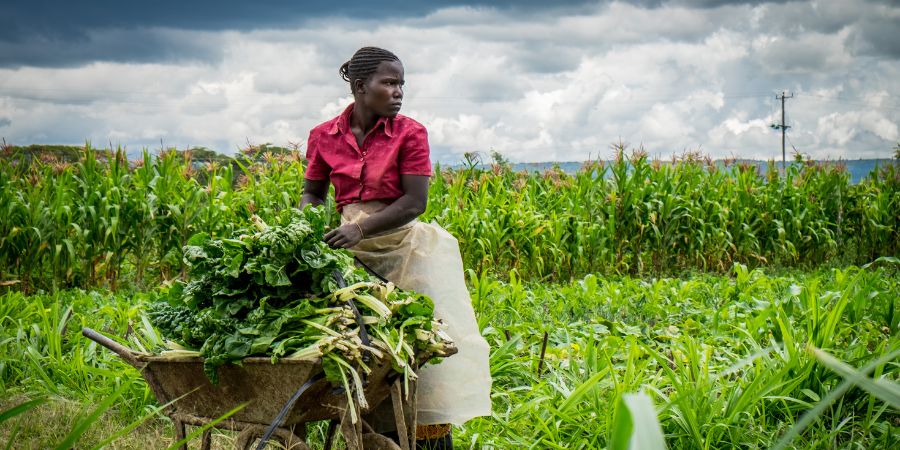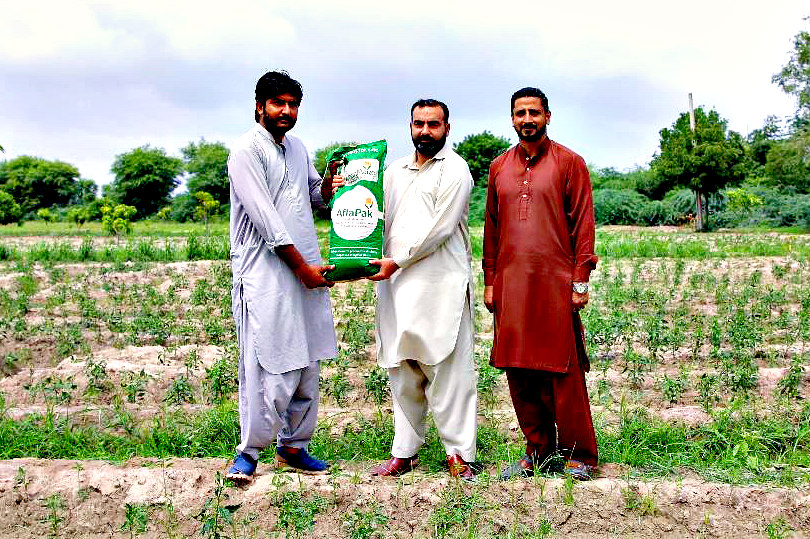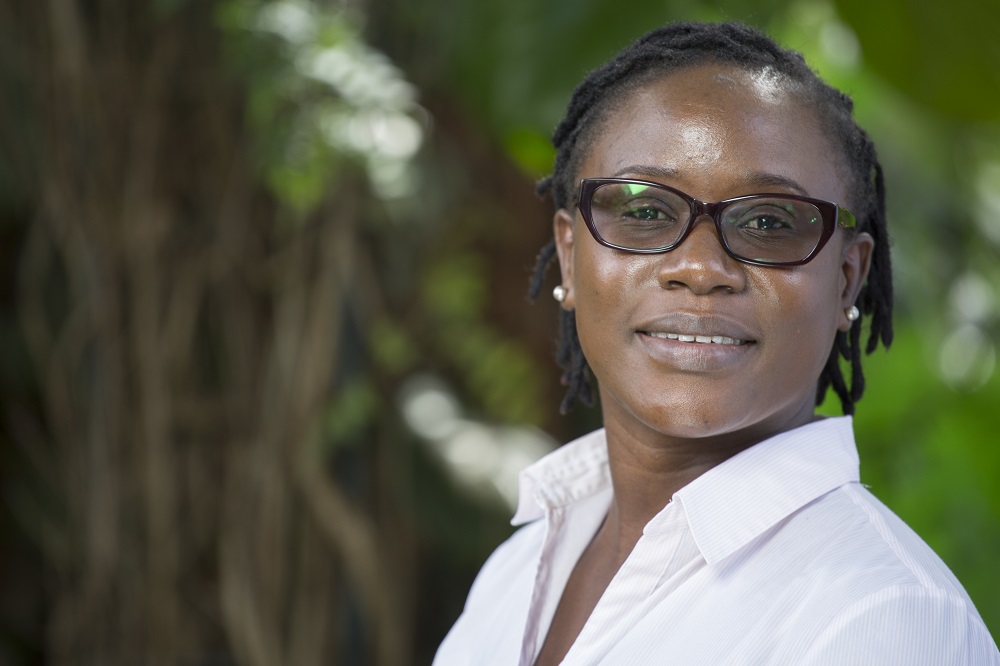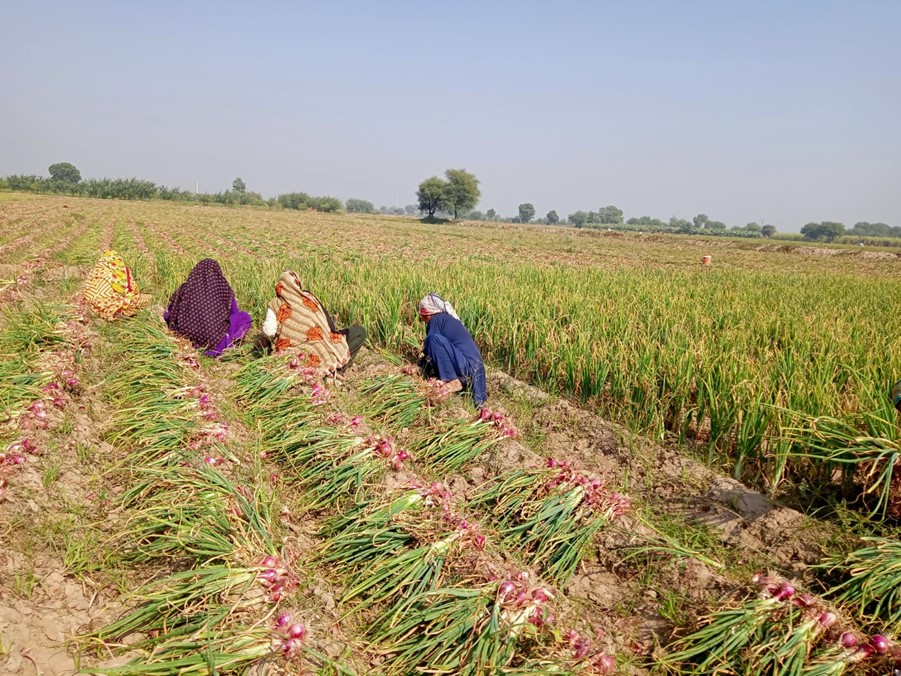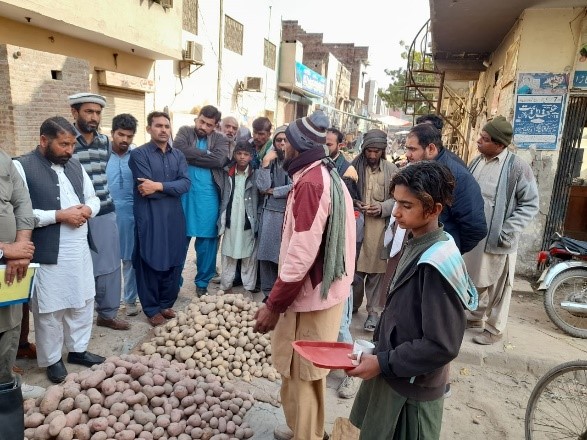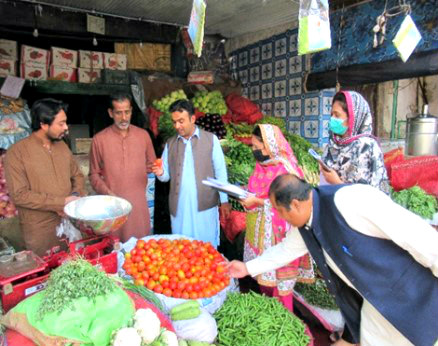CABI Blog
You are here: CABI Blog
‘Whole family’ approach supports value chain development through improved gender inclusion
October 17, 2022
Azeem Haider Naqvi, Habat Ullah Asad, Iqra Sultan
1 comment
Women play a key role in agriculture in Pakistan that has not always been acknowledged. They are mostly deprived of access to information, knowledge and skills enhancement. This leads to poor technical skills with minimum wage employment, no recognition and no role in family decision-making.
World Food Day: How can data science and modelling help smallholders adapt to climate change?
October 14, 2022
Cambria Finegold
No Comments
Data science and modelling are relatively new concepts when it comes to farming. For centuries, smallholders have carefully passed down agricultural skills from generation to generation. They depended on this knowledge. And stable seasons and weather meant this information remained relevant for years.
The Global Burden of Crop Loss: Evidence-based systems to tackle food security
October 11, 2022
Laura Hollis
No Comments
As World Food Day approaches, we look at the impact of crop loss on food security and the data needed to support evidence-based solutions for prioritising crop protection investments.
Fields trials on biological control of aflatoxins on red chilies to ensure safer crops
September 28, 2022
Babar Bajwa, Sabyan Faris Honey
No Comments
CABI in Pakistan is leading a project to help provide a biological control solution for combatting aflatoxin issues prevailing in red chillies grown in Sindh, Pakistan.
Potato value chain project featured on Duhok TV
September 21, 2022
Wayne Coles
1 comment
The CABI project ‘Strengthening the potato value chain in the Kurdistan Region of Iraq’ has been featured on Duhok TV.
CABI shares expertise on crop pest management in Africa with Royal Society of Biology
September 15, 2022
Wayne Coles
No Comments
CABI’s Dr MaryLucy Oronje has shared her expertise in sanitary and phytosanitary (SPS) measures pertaining to crop pest management in Africa as part of an event organised by the Royal Society of Biology. Dr Oronje, who is based at CABI’s regional centre for Africa in Nairobi, Kenya, was keynote speaker at the event which was…
Onion farmers embrace value chain approach and ‘best practice’ interventions in rural Sindh
September 2, 2022
Azeem Haider Naqvi, Habat Ullah Asad
No Comments
CABI’s centre in Pakistan is currently implementing an ACIAR-funded R4D project in Sindh. Called ‘Strengthening Vegetable Value Chains in Pakistan’ (SVVCP), the project aims to benefit community livelihoods.
Boosting socio-economic gender equity for smallholder potato farmers in Pakistan
August 31, 2022
Hafiz ur Rehman, Muhammad Asif, Qadeer Ahmad
No Comments
Conventional farming systems in Pakistan deprive smallholder potato farmers (both men and women) of the fair and equitable social and financial gains they deserve as a result of social, marketing, and technical challenges.
Support of Liveability Challenge 2022 highlights CABI’s commitment to sustainability
August 17, 2022
Wayne Coles
No Comments
CABI helps farmers tackle global issues like poverty, hunger, education, equality, sustainability, climate change and biodiversity by sharing knowledge and science, writes Neil Willsher, CABI’s Global Director, Value Chain & Trade.
Vegetable project in Pakistan build capacity of agriculture extension staff on value chain approach in Punjab and Sindh
August 15, 2022
Azeem Hayder, Habat Ullah Asad, Hafiz ur Rehman, Rehan Riaz
No Comments
Smallholder farmers constitute a major part of the vegetable industry in Pakistan. However, these farmers cannot effectively participate and benefit from the existing vegetable supply chains due to various reasons such as social, financial and market constraints. In addition, a production-orientated mindset can also lead to poor quality and low prices.
Subscribe to blog
DISCLAIMER
Views expressed in contributions do not necessarily reflect official CABI positions.
Archives
Categories
- Agriculture and International Development
- Veterinary and Animal Sciences
- Climate change and biodiversity
- Publishing
- Value chains and trade
- Crop health
- Environmental Sciences
- Human Sciences
- Tourism, Hospitality and Leisure
- Food and nutrition security
- Plant Sciences
- Gender and youth
- Digital development
- Development communication and extension
- Economic development
- Invasive species
- CABI Bioservices
- One Health


